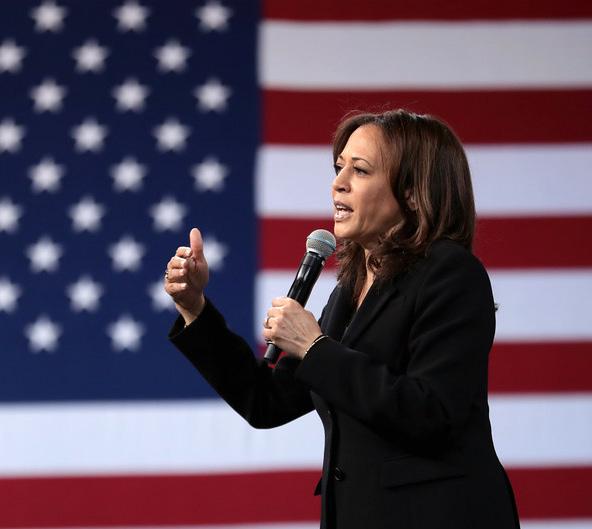
3 minute read
Kamala Harris’s journey to the White House
Photo by Gage Skidmore (Creative Commons)
By: Grace Price
Advertisement
Kamala Harris is no stranger to milestones. In 2004 she became the first African American and first woman to serve as district attorney in San Francisco. In 2011, she became the first Black and first Indian American woman to serve as attorney general for California. In 2017, she was elected as the first African American woman to serve in the Senate for California. Then, in January 2021, she set a new record of firsts when she was sworn in as the first female, the first African American and the first Asian American vice president of the United States.
Harris was born in Oakland, CA in 1964 to two immigrants: her mother, Shyamala Gopalan from Chennai, India and her father, Donald Harris from Brown’s Town, Jamaica. They had both come to the United States to pursue further education at the University of California Berkeley, where they met at an Afro American Association meeting. The pair effectively raised Kamala to be an activist, taking her to Civil Rights Protests when she was still in a stroller. In 1967, her sister Maya Harris was born, and in 1971, when she was 7 years old, her parents divorced. Her mother was a prominent breast cancer researcher, famous for her work in isolating and characterizing the progesterone receptor gene, which led to major advances in breast biology and oncology. She took her daughters to visit family in both India and Jamaica throughout childhood and emphasized the importance of recognizing their heritage. In 2009, Kamala’s mother passed away from colon cancer, and requested donations be made in her honor to the Breast Cancer Action organization. Kamala’s father was a professor of economics at Stanford University, where he made history as the first Black person to receive tenure in Stanford’s economic department and has been retired since 1998. At age 12, Kamala moved to Montreal, Quebec with her mother and sister. She graduated high school there before moving to Washington D.C. to pursue a degree in political science and economics at Howard University. After graduating in 1986 she moved back to California to attend the University of California Hastings College of Law, where she graduated in 1989 with a Juris Doctor. She was admitted to the California Bar in 1990. Harris quickly established herself as a determined force in criminal justice, with a passion for reducing recidivism and working on drug regulation. Harris is also recognized for her sometimes drastic changes in her beliefs. A prime example is her opinion on the legalization of marijuana. She had previously deemed it harmful to legalize, with her San Francisco office overseeing over 1900 cannabis convictions itself. In 2019 though, she introduced the Marijuana Opportunity Reinvestment and Expungement Act (MORE) to legalize marijuana at a federal level as well as expunge low level marijuana possession convictions and authorize grants to communities of color which had been most harshly affected by cannabis criminalization. She explained the change of mind saying “Everyone, especially communities of color that have been disproportionately impacted by the war on drugs, has a real opportunity to participate in this growing industry.” Instances similar to this have occurred before in her career. She has been criticized for her tendency to backtrack so that she can secure the majority, though others argue this is simply an example of her ability to grow as she is further educated. Harris’s association with reducing recidivism derives from her voting for the First Step Act, which was signed by former president Donald Trump, as a means to reduce repeat offenders as well as the federal inmate population. This would be done through expanding job training and early release programs, as well as introducing modifications on sentencing laws, such as mandatory minimum sentences. Though, some people have still been skeptical after her long history as a harsh prosecutor and close affiliation with the police. Meaning, they believe she is more partial to a system that has built a reputation of disproportionately affecting people of color and promoting mass incarceration. However, during her presidential campaign in 2019, she introduced a criminal justice reform act where reversing mass incarceration was one of the main goals. Harris is eager to continue on her journey for reform as she settles into the White House. She values the milestones she has achieved, and holds close to her mother’s words “Kamala, you may be the first to do many things, but make sure you are not the last.”










